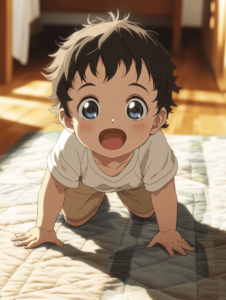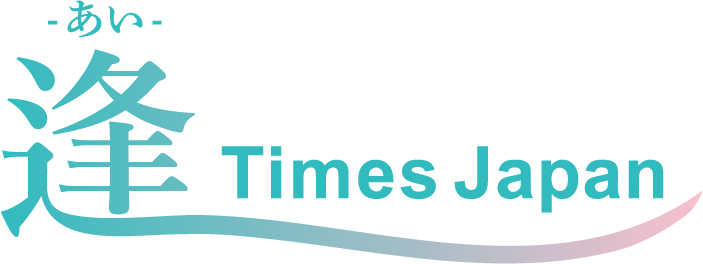Hello everyone.
In this issue, we will focus on male victims who are in a difficult position to speak up in the domestic violence (DV) issue.
Japan’s DV Prevention Law in Question
The Law for the Prevention of Domestic Violence, which came into effect in Japan in 2001, states that “in most cases, the victim is female”. Since it is so written, it is not surprising that male victims are less likely to speak up. It is as if they are being told that male victims are to be ignored.
As if to question the wording of the Law for the Prevention of Domestic Violence, statistics from 2023 show that the number of men who committed suicide due to domestic violence was a whopping 6.75 times that of women. This is like saying that male victims of domestic violence are an “inconvenient truth” that is not told to the public.
Another type of domestic violence that is overwhelmingly affecting men in Japan is the “taking away of children. Recently, the act of one parent taking a child without the other’s permission and interfering with the parent-child relationship has begun to be known as a form of DV, and from the DV victim’s perspective, it is truly a “trampling” situation when even his precious child is taken from him. The cases presented here highlight the harsh reality of how men who have been subjected to domestic violence are trapped and lose connection with their children.
Victims’ real-life experiences.
Hikaru (pseudonym) is a father of one child. However, he has been suffering from violence by his wife since the beginning of their marriage. In addition to physical violence such as punching, kicking, and throwing things at him, she also inflicted emotional violence such as verbally abusing him for a long time. In addition, his wife managed all of his payroll accounts and placed strict limits on his living expenses, so that Hikaru received only a small allowance. In other words, Hikaru was subjected to economic DV, which entailed mental control and severe restrictions on his living expenses.
Hikaru endured the situation, saying, “I don’t want to make things worse for our child,” but he finally felt he had reached his limit and reported the incident to the police. As a result, his wife was placed in a “domestic violence perpetrator rehabilitation program. Mr. Hikaru finally began to feel signs of freedom from violence, but the real ordeal began here.
After a series of discussions with a third party, they decided to separate, even though their child was not yet one year old. His wife moved in with the child, and a promise was made that Hikaru and the child would see each other once a week. However, soon after the separation, the wife stopped keeping her promise and did not see the child at all. She also immediately abandoned her participation in the rehabilitation program that she had agreed to. Hikaru repeatedly asked for parent-child contact, but the response was “nothing. In the end, he had no choice but to appeal to the court, claiming visitation rights. Just when he thought he had been released from the nightmare, another nightmare awaited him.
Even when mediation or a trial begins, the road is long and arduous, thanks to the wife’s repeated absences. Even when the family court finally approves parent-child interaction, unfortunately, it is not carried out, and there is no blame placed on the wife. Thus, unreasonably preventing parent-child visitation can be said to be mental abuse of the child. In Japan, penalties are imposed for nonpayment of child support, but it is not surprising that some people say, “Then there should be a similar penalty for separating parents from their children, as is done in other countries.
Hikaru finally got his payroll account book and card back, but the contents were found to have been reduced to “less than half”. His wife, on the other hand, is not legally punished for that. Nevertheless, he continues to pay the court-ordered living expenses without fail “for the sake of the child. No one offers any help for this one-way devotion.
Hikaru has suffered unimaginable misfortunes, such as having his property absconded with and his children taken from him. And even now, he finds himself in a legal battle.
This is a case of a DV victim being forced into an additional predicament, where the child is in effect “taken away” from him or her. In Japan, there appear to be laws regarding parental rights and visitation rights, but in reality, parental rights are often ignored. Even with an arrangement like Hikaru’s to “see him every week,” it is apparently only as reliable as a gossip article in a weekly magazine.

In Japan, a parent who has had a child taken from him or her may be punished if he or she publishes the child’s photo or privacy without the consent of the parent who took the child. Therefore, the photos are processed to protect privacy.
Surprising Facts from the Survey – Male Victims without Support
Furthermore, there is an alarming lack of “DV consultation services and support systems for men” in Japan. According to a 2023 Cabinet Office survey, 62% of local governments answered that “there are no DV consultation services for men. This clearly shows the reality that there are few places for men to turn to when they become victims of domestic violence. Thus, they receive a cold response that tells them to “hang in there and endure if you are a man,” and they are driven into the mindset of being ashamed of themselves for asking for help.
This content is restricted to site members.
If you are an existing user, please log in.
New users may register below.
New User Registration


